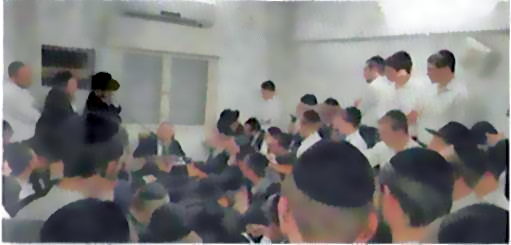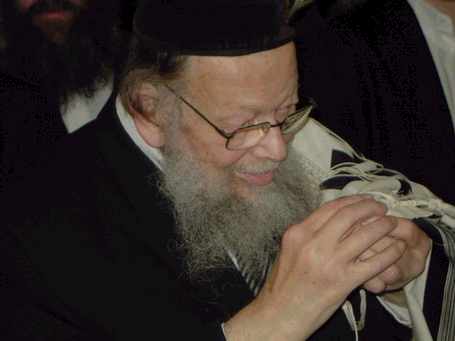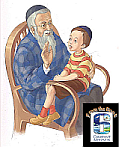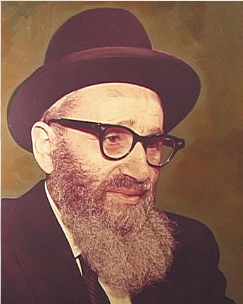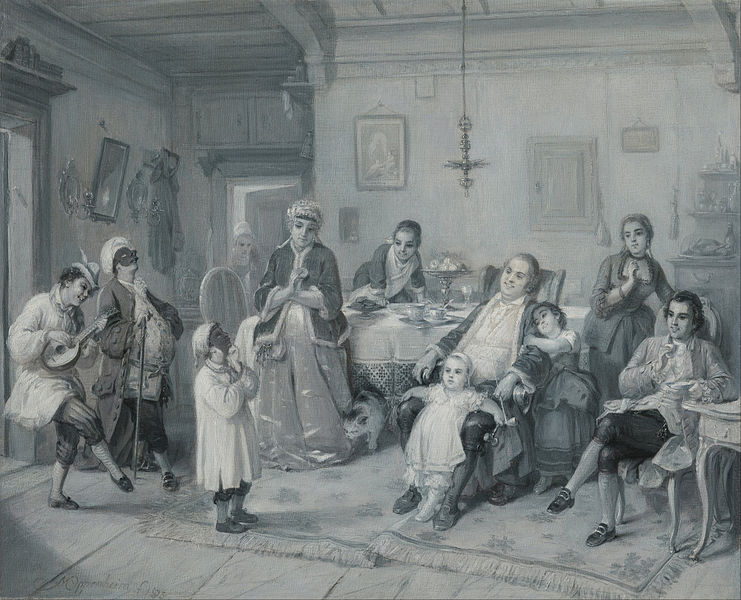  |
|
| |||||
This Google Custom Search looks only in this website. Unexpected Election Results: Likud Up and Blue-White Down
With 99.5% of the votes counted, the results of the voting show an unexpected major rise for Likud, with Blue-White falling somewhat.
At this time, probably final results are: Likud has 36 Knesset seats (1,351,368 votes). Blue-White has 33 seats (1,219,870 votes), significantly smaller than Likud. The Joint Arab List is the third largest party with 15 seats (580,044 votes). Shas has 9 seats (352,674 votes). UTJ has 7 seats (274,431 votes), as does Avodah-Meretz-Gesher (267,909 votes) and Yisrael Beiteinu (263,240 votes). Yeminah has 6 seats (240,406 votes).
In his weekly talk on Tuesday at his home, Morenu Rosh Hayeshiva HaRav Gershon Edelstein talked about Purim and the rules of conduct for bnei Torah during those days:
Purim is a time when one might stumble over one's obligations to his fellows. Sometimes someone has some resentment against someone and he waits for Purim to get back at him. One time someone had something against someone who had a bad intention to do something to someone in his family. In a Purim sheet he wrote words of ridicule against that person who was an odom choshuv and in the end he was punished in a horrible way for the bein odom lechavero harm that he caused.
No one ever imagined anything like this happening.
But just two months after hundreds of thousands worldwide took part in The Siyum, the ranks of lomdei Daf Yomi have swelled by tens of thousands of new recruits, with lomdim of all ages and from all walks of life preparing to celebrate the culmination of Maseches Brochos this coming Shabbos, Parshas Tetzaveh-Zachor, on March 7th.
Menuchoh (resting) on Shabbos enhances one of the human fundamentals that are crucial for one's overall shleimus, namely, menuchas hanefesh (inner peace), according to HaRav Shlomo Wolbe zt"l. In order to understand menuchas Shabbos we must first direct our attention to the concept of menuchas hanefesh and its function in avodas Hashem.
The chairman of Degel HaTorah, MK Rabbi Moshe Gafni, seemed relaxed. "According to the not-yet-final results, we have gotten a lot of votes from traditional communities on the periphery (away from the large concentrations of chareidim in Jerusalem, Bnei Brak and the life). We got votes literally from all over he country. All this in addition to maintaining our strongholds.
At the initiative of the Vaadat Rabbonim to Bolster the Walls of the Religion the upcoming Shabbos Zochor will involve and widespread effort to discuss the dangers of the Internet.
Rabbonim will speak about the importance of staying away and defending oneself from the severe dangers that the modern tools present.
Part IV
The first parts showed how covert miracles reveal the foundations of emunah and that through these miracles Hashem allocates reward and punishment for our deeds. In addition there is a Divine hanhogo called mazal which, the Ramchal explains, is the handing out of different duties to each person according to his neshomoh's root without connection to the reward and punishment that he deserves or that he gets in this world.
The first parts of this important essay also quoted the Ramban who said that the performance of miracles establishes basic principles of the Torah. However, covert miracles, which are performed by Hashem all the time in arranging the world in an appropriate way in response to the way people act in doing mitzvos, praying and so on, are also a basic foundation of Torah. Nonetheless, the justice in the way the world is run is not always apparent.
click here
Rain and Kinneret Watch by Dei'ah Vedibur
Staff
Our weekly report of the rain and the level of the Kineret -
Winter, 5780.
* * *
Moritz Oppenheim: Purim Feast, 1870
From Our Archives
Dispersed and Separated Among the Nations
by Mordecai Plaut
Rovo said: There is no one who knew loshon hora as well as Homon. Loshon hora always refers to telling the truth, albeit in a destructive way. So Homon, in his arguments to Achashverosh about destroying all the Jews, was telling the truth about us.
What did he say? Yeshno am echod mefuzor umeforod bein ho'amim (Esther 3:8). There is a people who should be one, who should be united, but instead they are dispersed and separated among the nations.
Some people said that chas vesholom the Torah keeps us apart. Let us have something else to bring us together. Perhaps there were some who felt sincerely that something else could do it.
Nothing has worked. Enthusiasm for the State of Israel lasted for about 40 years, but it no longer excited many Jews on its own -- certainly not those living in chutz la'aretz who never even visit and have no interest in doing so, and increasingly not even many of the Jews in Eretz Yisroel itself. Freeing Soviet Jewry? Remembering the Holocaust? These are powerful ideas but they obsolete themselves and have only a limited life span.
by Paysach Freedman
Why were the Jews worthy of destruction at the time of Purim? The gemora offers two possibilities: Either because they had bowed to the avoda zora of Nevuchadnetzer, or because "nehenu miseudas Achashverosh" -- they took pleasure from the party of Achashverosh.
The incident with Nevuchadnetzer occurred many years before the Purim story, in the aftermath of the destruction of the first Beis Hamikdosh. The Jews at the time were a defeated nation. They secretly remained faithful to Hashem. In their hearts, they paid no allegiance to the idol of Nevuchadnetzer. Still, they were now subjects of Nevuchadnetzer and as such they deemed it politically expedient to pay respects to his god.
EARLIER EDITORIALS
A Mission to Spread
Daas Torah
Looking for the
Best in Yiddishkeit
The Immorality
of Palestinian Combatants and Noncombatants
|
|||||




.jpg)

